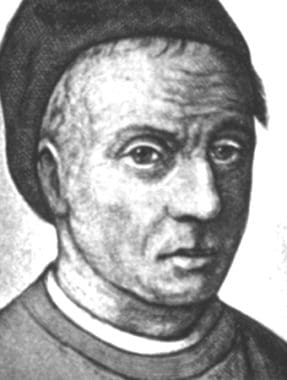Education and Culture at the Service of the Apostolate
Presence of God – Teach me, O Lord, to put into the service of the apostolate all the talents I have received from You.
MEDITATION
Together with the natural virtues placed at the service of apostolic charity, it is also necessary to consider the other human qualities which give the apostle an ascendency in his field of activity, not for his personal gain, but for the benefit of the Christian ideal. To say that notwithstanding his culture and abilities, the apostle can do nothing without the help of God, is not a condemnation of these natural values; is merely the statement that, of themselves, these qualities are insufficient to attain the essential end of the apostolate, that is, the communication of grace to souls, an end which only the divine action can effect. However, that which does not suffice in itself, can become in the hands of God a most excellent means for procuring the good of souls. The brush of itself can do nothing, but in the hands of a skillful master, it can be used to create great works of art.
The apostle should be conscious of the radical insufficiency of his gifts and talents; but at the same time, he should cultivate these gifts and make these talents bear fruit, so as to put them at the disposal of God for apostolic ends. It is therefore necessary that apostles foster their intellectual formation, together with the interior life. Certainly sanctity is always the more important element; however, when learning is united to sanctity, the results will be better. St. Teresa of Jesus was of this opinion, and she did not hesitate to say concerning spiritual direction:
“The director ought to be a spiritual man, but if he has no learning, it is a great inconvenience” (Life 13).
This is true, not only in the direction of souls, but in any form of apostolate, for “learning is a great help in giving light upon everything” (Way of Perfection 5); furthermore, it is impossible to gain entrance into certain circles without sufficient culture. It is therefore a duty of the apostle to procure an intellectual preparation adequate to the apostolate which he must exercise. It is not a question of seeking knowledge which inflates, nor of cultivating one’s intellect in order to make a display of oneself, but of putting into use for the good of souls all the talents received from God. Under the vivifying influence of charity, such things as education, culture, doctrine, technical capabilities—everything, in fact, is transformed into means of furthering the apostolate.
COLLOQUY
O Lord, I do not desire knowledge that inflates, but the humble learning which comes from You, enlightening minds and enkindling hearts.
 “You, O Lord, are He who teaches men knowledge, and to little ones You give a clearer understanding than can be taught by man. If You speak to me, I shall become learned in a short time and will make great progress in the spiritual life.
“You, O Lord, are He who teaches men knowledge, and to little ones You give a clearer understanding than can be taught by man. If You speak to me, I shall become learned in a short time and will make great progress in the spiritual life.
“It is You, O Lord, who in an instant so enlighten the humble mind that it comprehends more of eternal truth than could be learned by ten years in the schools, You who teach without noise of words or clash of opinions, without contention of arguments” (Thomas à Kempis, Imitation of Christ III, 43,2.3).
Give me this knowledge, O Lord, and I shall be able to enter into study and work without any danger of vainglory. I want to use the intelligence You have given me by employing it in Your service; I want to make it fructify for Your glory and for the good of souls. Everything that I have received from You—intelligence, will, physical and moral energies—should be used for this end, for the apostle must be completely devoted to the fulfillment of his mission, always at his post for the defense and the glory of Your Name.
Sanctify, Lord, my studies, my work, the practice of my profession; grant that love may transform all into a means of apostolate.
“Remember, Lord, that You declared to me, ‘I have come for the salvation of souls.’ I offer You, then, my life, now and forever; grant that it may be pleasing to You; I offer it for Your glory, humbly begging You by virtue of Your Passion, to purify and to sanctify Your people” (St. Catherine of Siena).
+
 Note from Dan: This post on the Solemnity of the Most Holy Trinity is provided courtesy of Baronius Press and contains one of two meditations for the day. If you would like to get the full meditation from one of the best daily meditation works ever compiled, you can learn more here: Divine Intimacy. Please honor those who support us by purchasing and promoting their products.
Note from Dan: This post on the Solemnity of the Most Holy Trinity is provided courtesy of Baronius Press and contains one of two meditations for the day. If you would like to get the full meditation from one of the best daily meditation works ever compiled, you can learn more here: Divine Intimacy. Please honor those who support us by purchasing and promoting their products.
Art for this post on Education and Culture at the Service of the Apostolate: Mirror of Thomas von Kempen (Thomas à Kempis), 1380-1431, author unknown, date unknown, PD-US author’s life plus 70 years or less, Wikimedia Commons.. Father Gabriel of St. Mary Magdalen, mirror from open source material.




